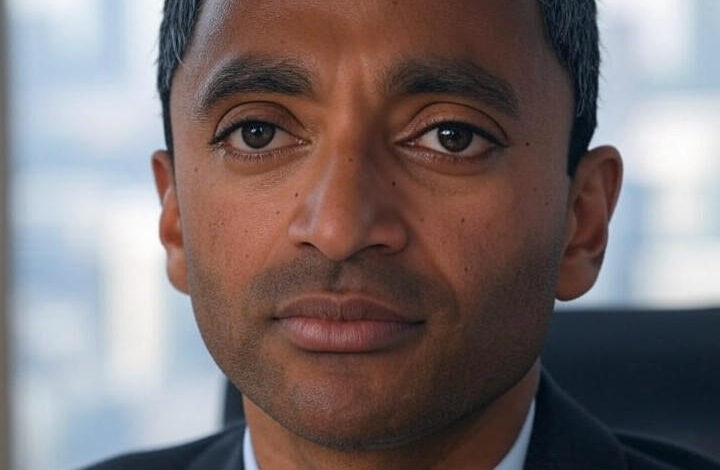Chamath Palihapitiya’s Hustle Culture Sparks 2025 Mental Health Debate

BREAKING: Chamath Palihapitiya, the former Facebook executive and venture capitalist, has reignited a fierce debate over work culture after declaring that aspiring entrepreneurs should “don’t do anything other than working” to achieve success. This controversial statement, made during a recent interview, has raised urgent questions about work-life balance as we approach 2025.
Palihapitiya’s comments, reported by Yahoo Finance, advocate for total immersion in work, suggesting that personal pursuits dilute the intensity required to build groundbreaking companies. His philosophy harkens back to the early days of Silicon Valley, where figures like Steve Jobs embodied a relentless work ethic. Yet, as mental health awareness grows, many are pushing back against this hustle culture.
Recent surveys indicate that a staggering 60% of tech workers feel overwhelmed by the demands of constant connectivity. A large-scale poll of over 8,000 professionals confirms that the pressure to maintain relentless dedication is leading to burnout. The growing sentiment reflects a significant shift in workplace norms, as employees demand more sustainable work environments.
As we move deeper into 2025, reports from the World Economic Forum highlight the need for a reevaluation of productivity models. The Future of Jobs Report warns that half of all employees will require reskilling due to AI and automation, but it also stresses the risk of rising burnout if companies neglect work-life integration.
The increasing prevalence of “quiet quitting” and hybrid work models is further evidence that employees are setting firm boundaries to combat the always-on culture that Palihapitiya promotes. In progressive tech hubs like San Francisco and Austin, startups are trialing four-day workweeks, yielding productivity gains without the grind, according to recent insights from SHRM’s report on workplace trends.
Emerging technologies, while automating routine tasks, are also intensifying performance pressures. Discussions on social media platform X (formerly Twitter) reveal that tech workers are seeking balance amidst these changes. Influencers such as Lenny Rachitsky are sharing survey results showing a strong demand for more manageable workloads in an AI-driven landscape.
Critics of Palihapitiya’s philosophy point to the fallout from toxic work environments. High-profile exits from companies like Tesla and Amazon reflect a growing discontent with overwork, leading to a 15% spike in employee turnover rates in tech sectors last year, according to Great Place to Work.
Advocates for a balanced approach argue that innovation thrives in well-rested minds. Industry leaders face the challenge of fostering intense focus without alienating talent. Reports suggest that a hybrid approach could redefine success metrics, moving beyond sheer output.
In this evolving landscape, successful firms may be those that adapt to the changing needs of their workforce. With HR teams increasingly blending ambition with empathy, the emphasis on tracking skills and creating supportive environments is becoming crucial for talent retention.
As these discussions unfold, the implications for 2025 are clear: the balance between ambition and well-being will be critical in shaping the future of work. Palihapitiya’s mantra may resonate with a select few, but the broader evidence indicates that a more compassionate approach could lead to sustainable success.
Stay tuned for more updates as we monitor the evolving dynamics of work culture in the coming months.






